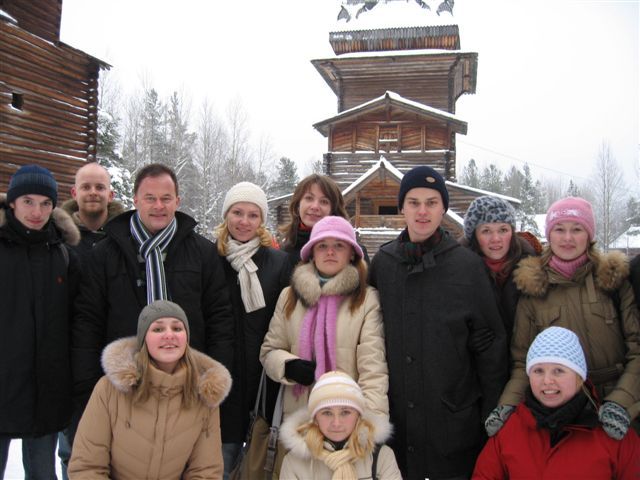What is social policy? What forms of social policies exists under different political regimes? And how do citizens experience social policies? Such questions were on the agenda of the first 10-point joint bachelor-level course that Bodø University College and Pomor State University run together.
Ten Russian students and five students from Norway attend this course, which consists of two week-long periods of lectures and groupwork. The first part took place in Archangelsk the first week of November. The next part will be in Bodø in March 2007.
The course is a part of the “Pomor III” project that comes to an end this year. Teachers at both institutions are responsible for both planning and teaching, and the syllabus contains both Russian and international literature on social policy. Students will read a collection of articles, ten of them on Russian topics and translated into English.

The students have to write a paper after the first week in Archangelsk, and another – more comprehensive paper – after the next week in Bodø . This last paper will count as their exam.
"After the first week, the enthusiasm is very high among students and teachers," says Asgeir Solstad, the new lead of UArctic's Thematic Network on Social Work. "We really look forward to the next meeting in Bodø."
"Next year we hope that this course can be a part of the University of the Arctic, and be open to students from a lot of other institutions," he adds.
The Thematic Network on Social Work, hosted by Bodø University College in Bodø, Norway, aims to initiate and strengthen co-operation between institutions running social work education and research in the Circumpolar North. The network also aims to enhance the opportunities for student mobility and the exchange of knowledge in the area of social work in a Northern context, including in indigenous communities.

